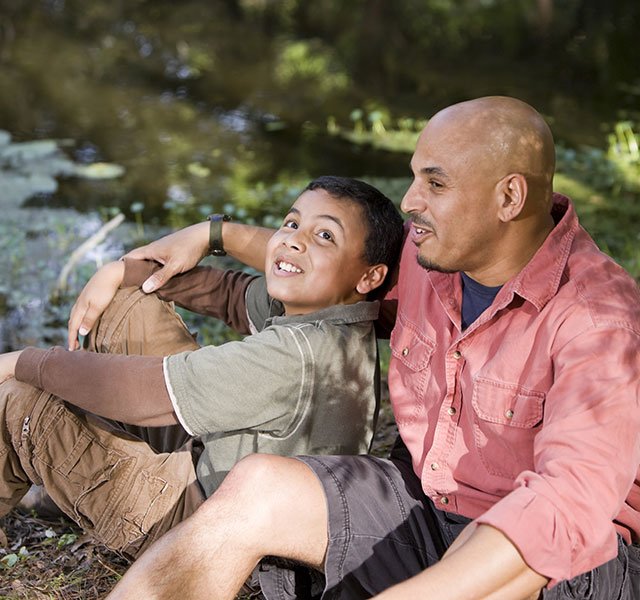There are few things that will make you squirm as much as talking to your kids about sex. “The Talk,” as it’s often called, usually involves more than its fair share of blush-worthy moments.
But long gone are the days of your parents’ awkward speech about the birds and bees. Living in the digital age means you have to face reality. Kids are exposed to far more sexually explicit images than just a decade ago.
Here are eight things you need to know to help you navigate the modern-day sex talk with your kids. So put down those tablets, turn off those laptops and smart phones and pull up a chair:
- It should happen in stages. Sexuality is a continuum, which means you don’t have to reveal everything all at once. Start with basic information when kids are young, like body parts. Then move on to the changes we undergo when we go through puberty. As your kids get older, include deeper topics about sexuality and responsibility. Don’t feel like you need to give the whole story in one conversation. That being said…
- Start earlier. The digital age and constant access to the Internet, social media, smart phones and devices of all kinds means your kids have been bombarded by imagery from an earlier age than you might’ve chosen. By 12 or 13, they know a lot more than you realize. Waiting to talk about sex until then may be too late. Start the conversation around 9 to 11 years old, so you can help your young person get the correct information and establish standards around their sexuality.
- Look for opportunities. Sitting in a formal setting talking about sex can make kids uncomfortable and you, too. But if you see a situation come up that could be a good conversation starter, use it. Couples being affectionate, a scene on television or even a comment by their friends could give you a more natural way to find out what your child’s thinking.
Know your child. The conversations you do have should be guided by each child’s individual level of curiosity. Find out what he or she wants to know to help keep things age-appropriate. - Study up. See a text message, acronym or overhear a term your child uses with his or her friends that you don’t know? Chances are it’s well-known among kids. The digital age has one definite up side, and that is the availability of information – fire up that search engine and inform yourself.
- Beat peer pressure to the punch. Situations where your child has to make decisions about sexual behavior or what images to look at online are easier to deal with when you’ve given him or her the tools to react. Talking about sexuality, responsibility and appropriateness should always start at home before the outside world has a chance to test your kid’s mindset. By keeping them informed, we help them to make the right decisions even when we’re not there.
- Understand the bigger implications. Talking to kids who grow up in the digital age early also has one very big benefit: it helps them have a healthy self-esteem, the right perspective on body image and sexuality and know their worth. The imagery your kids see online, on television and on their phones is constant and ever-changing, so making sure they have the right mindset early on means they won’t be as influenced by what they see.
- Know their habits. Be “friends” with your child on social media, follow them on Twitter and read the comments that they make. Kids are entitled to some privacy, but you can also get to know your child better through his or her online behavior. It’s your right as a parent.
There are so many ways to reach your child in this constantly connected world. The important thing is to not be afraid to start the conversation and to keep it going. Healthy living means teaching your kids to live well when they’re young, and sexuality is a part of that. Don’t miss an opportunity to prepare them for the future.
For more help talking with your kids about sex and other topics, visit Henry Ford’s parent resources page.



